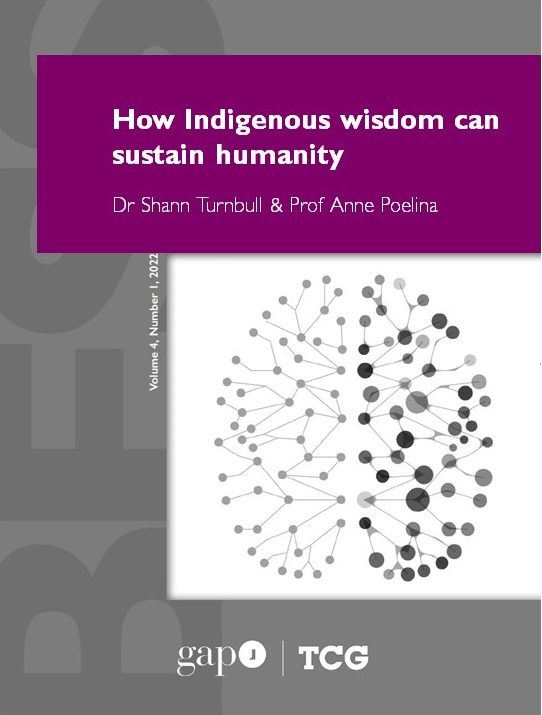How Indigenous wisdom can sustain humanity
DOI:
https://doi.org/10.54337/ojs.bess.v4i1.7293Nyckelord:
Aboriginal wisdom, relationships, practises, existential risks, polycentric governance, self-governance, stakeholder governanceAbstract
Ancient self-governing practices of Indigenous Australians reveal how modern society can achieve sustainable wellbeing for the environment and humanity. No other existing culture has a longer record. In her Nobel Prize speech, Elinor Ostrom described how pre-modern societies evolved polycentric self-governance to avoid over-exploitation of common life-sustaining resources between competing interests to deny them for everyone. Ostrom identified design principles for self-governing ‘Common Pool Resources’ without the intervention of markets or state. This article outlines how these principles could be enhanced to also: (1) recognise Indigenous wisdom, relationships and practices; (2) apply the design principles to incorporated organisations to create a new model of corporate governance to benefit all stakeholders; (3) introduce system science insights that allow creatures to become self-regulating, self-managing and self-governing; (4) identify a politically compelling tax incentive for shareholders to adopt stakeholder self-governance with the cost of the incentive recovered from stakeholders paying taxes and reducing costs for welfare and regulation. A basis is created on which to introduce a universal wellbeing income from corporate dividends. The principles outlined here allow for corporations to become agents for reducing environmental and existential risks for humanity.

##submission.additionalFiles##
Publicerad
Nummer
Sektion
Licens
Copyright (c) 2022 Dr Shann Turnbull, Prof Anne Poelina

Detta verk är licensierat under en Creative Commons Erkännande-IckeKommersiell-IngaBearbetningar 3.0 Internationell licens.
This journal provides immediate open access to its content on the principle that making research freely available to the public supports a greater global exchange of knowledge.
Articles published in BESS follow the license Creative Commons Attribution-NonCommercial-NoDerivs 3.0 Unported (CC BY-NC-ND 3.0)
Authors retain copyright and grant the journal right of first publication with the work simultaneously licensed under a Creative Commons Attribution License: Attribution - NonCommercial - NoDerivs (by-nc-nd).
Further information about Creative Commons




